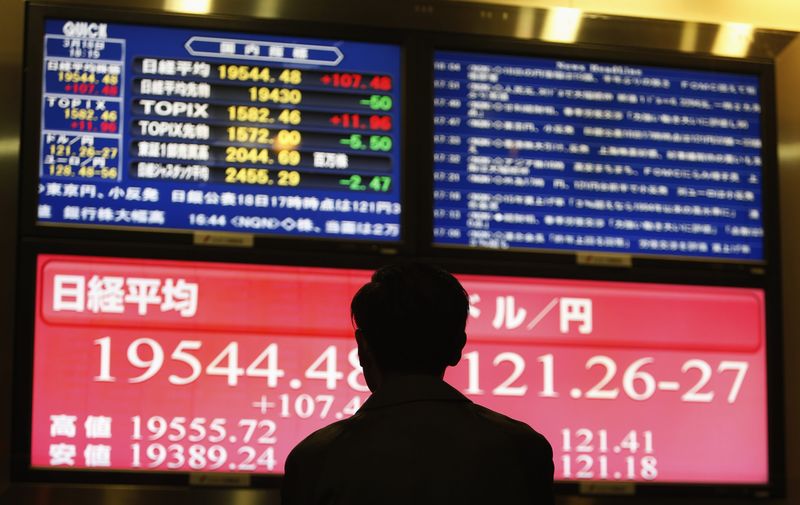By Wayne Cole
SYDNEY (Reuters) - Asian shares enjoyed their best session in 18 months on Thursday as investors priced in a later start and a slower pace for future U.S rate rises, slashing sovereign bond yields from Japan to Australia.
The shift in rate expectations hit the dollar hard at first, though the damage lessened as the session wore on. The formerly friendless euro had found itself as high as $1.10625
MSCI's broadest index of Asia-Pacific shares outside Japan (MIAPJ0000PUS) climbed 1.6 percent, its largest daily gain since September 2013. Australia's main index (AXJO) jumped 1.9 percent led by banks as markets wagered on lower domestic rates.
The only laggard was the Nikkei (N225) which slipped 0.2 percent in reaction to a firmer yen.
Short-term U.S. yields boasted their biggest drop in six years after the Federal Reserve trimmed forecasts for inflation and growth, and said unemployment could fall further than first thought without risking a spike in inflation.
The median projection for the Fed funds rate at the end of 2015 was cut to 0.625 percent, down half a point from December.
Fed Chair Janet Yellen also sounded uncomfortable with the strength of the dollar, saying it would be a "notable drag" on exports and a downward force on inflation.
"There was nothing in the statement to suggest that the Fed is leaning towards a June hike," said Michelle Girard, chief U.S. economist at RBS (LONDON:RBS).
"Developments leave us feeling more comfortable with our official call for the first rate hike being in September."
The market reaction was immediate and dramatic. Fed fund futures <0#FF:> surged as investors sharply scaled back expectations for how fast and far rates might rise.
The December contract rocketed to 99.59, implying a rate of 41 basis points and completely reversing the impact of the last two payrolls reports. Yields on two-year notes (US2YT=RR) peeled off to 0.55 percent, down a huge 12 basis points post-Fed.
RATTLED DOLLAR
The rally then rippled out to other bond markets, driving short-term yields in Australia to all-time lows and a similar reaction was expected in Europe.
The Fed's seeming caution on hikes rattled the dollar as investors have been massively long in the expectation its interest rate advantage could only get wider.
Against a basket of currencies, the dollar was down 0.3 percent <.DXY=>, having shed 1.8 percent on Wednesday.
The Swiss franc, sterling and the Australian dollar all enjoyed solid gains, while the New Zealand dollar
The dollar fared better on the yen with a dip to 120.50
Wall Street was encouraged by the prospect that policy might stay super-loose for longer and the Dow (DJI) ended Wednesday up 1.27 percent. The S&P 500 (SPX) rose 1.21 percent and the Nasdaq (IXIC) 0.92 percent.
Among commodities, gold held firm at $1,171 an ounce

U.S. crude